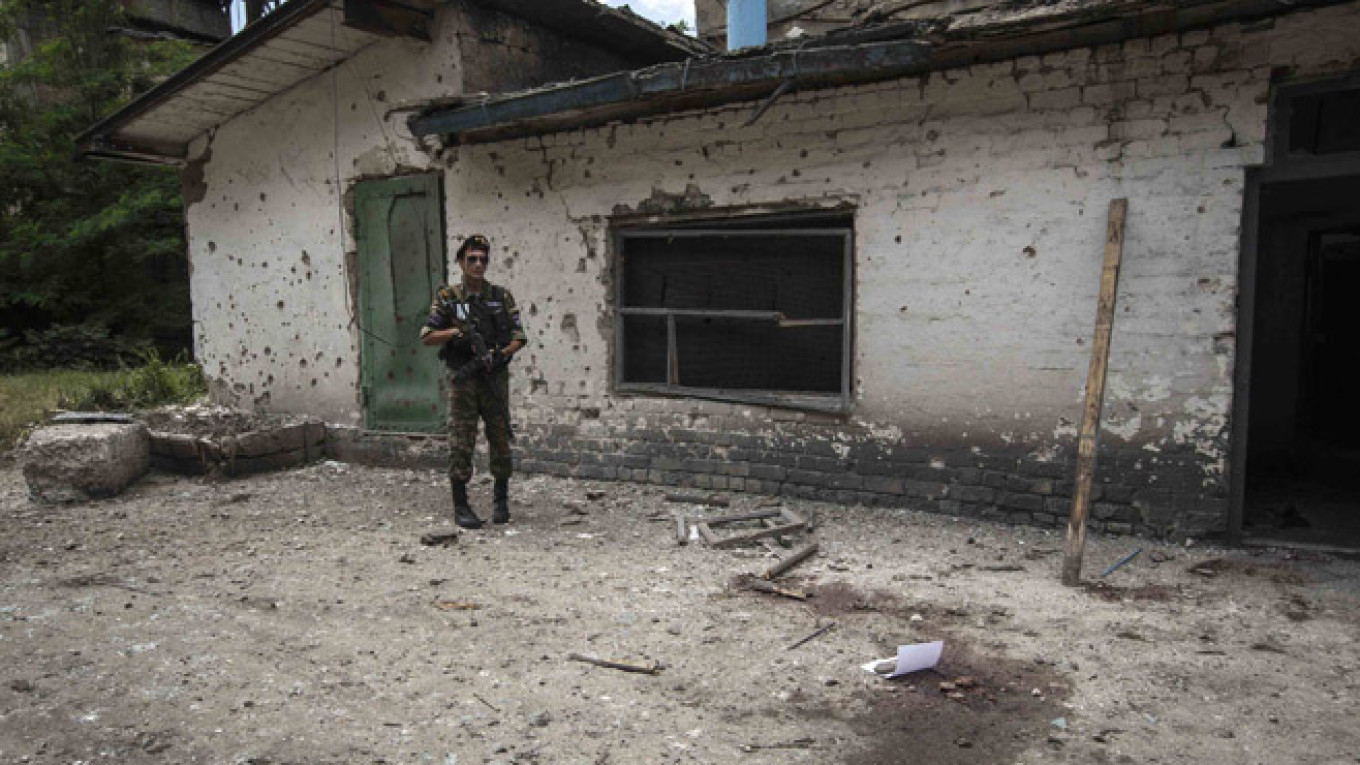Behind the bombastic discourse, the Kremlin's policies toward Ukraine are best described as hesitant. The rhetoric between Moscow and Kiev continues to be aggressive and threatening, but behind the facade Moscow has shown hesitation and a lack of strategic coherence.
Most significantly, though, the Kremlin has underestimated the danger of having a failed state at its doorstep. In the long run, Moscow's policy will result in a backlash, damaging Russia as well as Ukraine.
The speed of developments in Crimea shocked western policy makers. Russia's rapid intervention after the overthrow of Ukrainian President Victor Yanukovych, and the hastily organized referendum on March 16, changed ownership of the peninsula with a stroke of the pen. It was the exact reverse of Krushchev's 'gift' of the formerly Russian peninsula to Ukraine in 1954. Many feared that Donetsk, Luhansk, and Kharkiv would be rapidly swallowed by Russia.
However, four months after the initial annexation, the Kremlin's strategic objectives remain unclear.
The eastern provinces of Ukraine have turned into war zones. The conflict in recent months has revealed once again the weakness of the Ukrainian state: the armed forces showed themselves unprepared when faced with rebels in the east, and are not ready to fight a quick and decisive war. If the conflict continues, it will reinforce the right-wing nationalist parties in the west, and lead to their metamorphosis into fully fledged armed militias. The fragile cohesion of the state itself could still be put in question.
Moscow, meanwhile, should not have any illusions about its power to control militias in eastern Ukraine. The Kremlin's chosen policy to support pro-Russian militias against the Ukrainian Army without direct Russian military or political intervention is highly risky. Moscow may be able to influence such groups and have leverage over them through funding or providing arms but violent conflicts have logic of their own. Continuous clashes will lead to a spiral of radicalization and polarization between east and west, and will put an end to Ukraine as we know it.
Once disintegration of Ukraine starts, it is difficult to foresee where it could stop. At the very least, Russia will have a failed state and an armed conflict on its frontiers, where the border is just a line on a map.
From observing recent events in Ukraine, though, Putin himself seems to be unclear about what he wants. Instead, there appears to be day-to-day political management without an overarching strategy. Is Moscow aiming to break up Ukraine and annex chunks of it? Or, is Moscow seeking to preserve its national interests on its western borders?
But no matter Russia's long-term political objectives, the Kremlin most of all should understand the dangers inherent in a failed state. Today, the Russian ruling elite is obsessed by the idea of color revolutions. Yet this should not make them forget a greater trauma that Russia has already gone through, the break up of a state and its consequences.
There are real problems in Ukraine even without violence, including among others the relationship between central authorities and provinces, effective governance, and minority language status. These issues can be addressed only through building effective political institutions, and certainly won't be resolved easily if fighting continues. Poroshenko's lifting of the cease-fire yesterday has wasted an ideal opportunity to put an end to the circle of violence and can only lead to the further weakening of Ukraine's already unstable state.
Vicken Cheterian is a Geneva based journalist. His latest book is 'From Perestroika to Rainbow Revolutions', Hurst 2013.
A Message from The Moscow Times:
Dear readers,
We are facing unprecedented challenges. Russia's Prosecutor General's Office has designated The Moscow Times as an "undesirable" organization, criminalizing our work and putting our staff at risk of prosecution. This follows our earlier unjust labeling as a "foreign agent."
These actions are direct attempts to silence independent journalism in Russia. The authorities claim our work "discredits the decisions of the Russian leadership." We see things differently: we strive to provide accurate, unbiased reporting on Russia.
We, the journalists of The Moscow Times, refuse to be silenced. But to continue our work, we need your help.
Your support, no matter how small, makes a world of difference. If you can, please support us monthly starting from just $2. It's quick to set up, and every contribution makes a significant impact.
By supporting The Moscow Times, you're defending open, independent journalism in the face of repression. Thank you for standing with us.
Remind me later.


